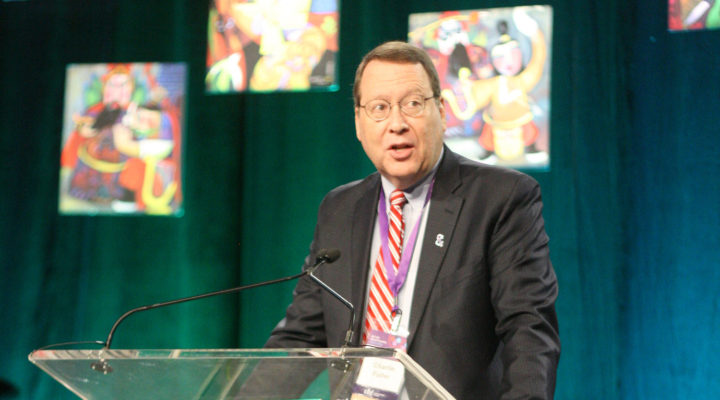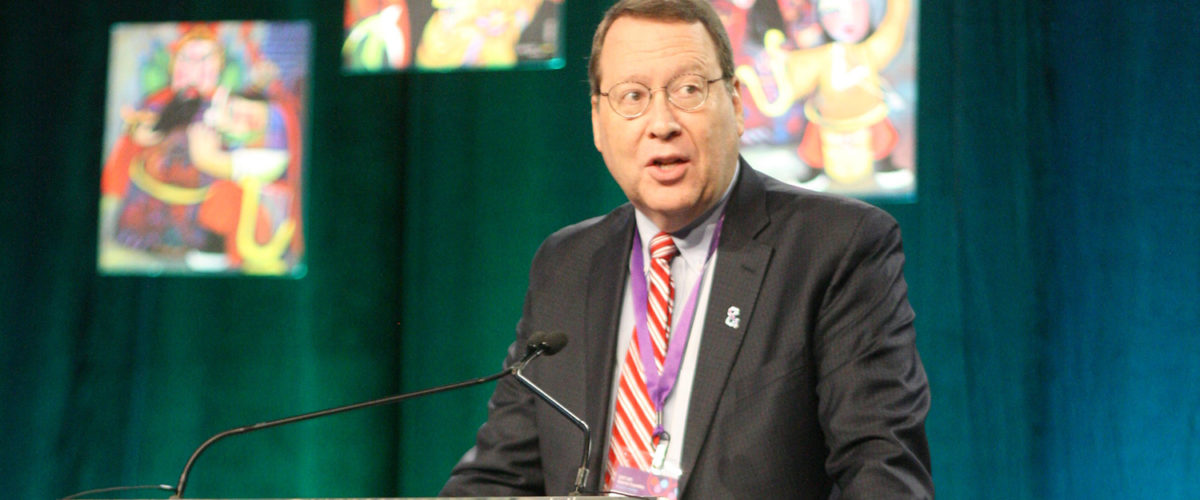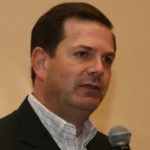The Cooperative Baptist Fellowship is trying to do what few if any mainstream religious bodies have been able to do — disagree about homosexuality without splitting — members of the CBF Illumination Project said both in a plenary session report and in two workshop discussions at the group’s 2017 General Assembly June 26-30 in Atlanta.
Charlie Fuller, chairman of the Illumination Project task force commissioned last year by the CBF Governing Board, said during a plenary session Thursday morning the group seeks to “be truly and genuinely Baptist” in the process, honoring “uniquely Baptist” values of the priesthood of the believer and autonomy of the local church.
“These cherished convictions are part of what distinguishes us from our Methodist, Presbyterian and Episcopalian sisters and brothers as they have experienced contention over matters of human sexuality,” said Fuller, executive pastor of First Baptist Church in Washington, D.C.
Appointed by Fuller and last year’s CBF moderator Doug Dortch, the task force is using Integrative Thinking, a process developed in the business world in the 1980s and 1990s for solving complex problems.
So far the committee has held 30 listening sessions across the nation, not counting the two General Assembly workshops, and conducted 31 two-hour structured interviews seeking insight into the broad spectrum of viewpoints found within the 1,800-church network.
“We have chosen a specific process that uses secular language, but we believe it’s designed to hear Holy Spirit,” Fuller said in a breakout session Friday afternoon. “It’s designed to hold two opposing ideas in tension and see what will happen. We’re looking for a win-win, where nobody believes there is one. We believe in a God who provides a win-win when nobody can see it.”
The United Methodist Church has been discussing for years its official position on homosexuality, gay marriage and ordination for those involved in same-sex relationships. The denomination’s top legislative body will hold a special session on homosexuality in St. Louis in 2019.
Hundreds of parishes have left the Presbyterian Church (U.S.A.) as the denomination’s leaders has developed a more inclusive attitude toward the LGBTQ community. In 2014 the Book of Order was amended to permit ministers and sessions to use their own discernment to conduct same-sex marriage ceremonies where allowed by law. The following year the Book of Order was revised to define marriage as “between two people,” rather than specifying a woman and a man.
The worldwide Anglican Communion has struggled with controversy over homosexuality in the church since the 1990s. The Episcopal Church in the USA permits the ordination of gay clergy and the blessing of same-sex unions, while Anglican churches in the Global South, which represent about half of the 80 million active Anglicans worldwide, holds to a more traditional view of marriage.
The CBF, founded 25 years ago by moderate and progressive churches disenfranchised by a rightward shift in the Southern Baptist Convention, is dealing with a 17-year-old policy barring “the purposeful hiring of a staff person or the sending of a missionary who is a practicing homosexual.”
Originally intended to prevent the Fellowship from being defined to the outside world by its critics, the policy has in recent years become increasingly criticized as contrary to CBF core values of inclusion and justice for all.
“I don’t know any organization or institution in my experience that has handled this well,” said task force member Kasey Jones, senior pastor of National Baptist Memorial Church in Washington, D.C., adding “we’ve got to have a better testimony” when it comes to handling conflict and reconciliation.
“Our testimony to the world is not good when it comes to conflict,” said Jones, a past CBF moderator. “How dare the church try to even critique the Congress if we can’t get it together? I don’t know if we’re going to fail, but I trust God even in those moments when we try to do our best.”
Task force member Steve Wells said the goal is not to change anyone’s mind about whether or not homosexuality is a sin.
“We don’t agree about this,” said Wells, pastor of South Main Baptist Church in Houston and member of the CBF Governing Board. “When we’re done, we’re still not going to agree about this.”
“Those people who have a need to be in a Fellowship that is all one mind may find this a difficult moment,” Wells said. “There is like-minded fellowship to our right and to our left. We are the people who get along with people who don’t agree with us, because we want to do something together. Our unity is expressed in our cooperation.”
The Alliance of Baptists, a smaller and more liberal group that disengaged from the Southern Baptist holy war three years ahead of the CBF, advocates welcome and inclusion of gays in all areas of church and society. The Southern Baptist Convention, the nation’s largest Protestant body, regards churches “which act to affirm, approve, or endorse homosexual behavior” not in “friendly cooperation” with the convention’s purpose.
As a more centrist group historically identified by cooperative missions, the CBF is seeking an elusive third way to navigate perhaps the most controversial issue facing Christianity today.
“I’m praying that we will find a way forward, because the mission that binds us needs all of us,” said Paul Baxley, a task force member and pastor of First Baptist Church in Athens, Ga.
“The fellowship is a community, a family,” Baxley said. “My faith grows so much by being in relationship with people who just don’t think like I do.”
Dortch, pastor of Mountain Brook Baptist Church in Birmingham, Ala., said one key to managing diversity is “before we learn to love one another, we have to learn to stand one another.”
Dortch described his congregation as “dually aligned” with both CBF and the SBC. He has been involved in leadership in both organizations, and continues to be active in his local Southern Baptist association.
“When I’m with my SBC friends, I’m the most liberal person in the room,” Dortch said. “When I’m with my CBF friends, I’m the most conservative person in the room.”
“I just remind you that churches like mine at this point comprise still a majority of supporting churches in CBF life,” he said.
Numerous LGBTQ persons in both workshop sessions said they love the Fellowship, but as long as there is a policy that discriminates against them they don’t feel welcome.
“I would assure that you are,” said Rebecca Wiggs, an attorney in Jackson, Miss., and the the task force’s only layperson, “but watch us, make us act that, believe it, and help us make it true by staying with us.”
Jones, a former community organizer and the only African-American on the Illumination Project team, said without voices of dissent “the ball will never move” toward substantive change.
“We don’t know what we’re doing, and all we know how to do is to trust God,” Jones said. “Will we make mistakes? I know I will. Are we going to disappoint people? Uh huh. But, you all, we’ve got to try something different.”
Aside from the hiring policy, the CBF has taken no position on the issue of homosexuality, leaving such decisions up to the local church.
“Because of this value, the Illumination Project will not be telling any church what they are to do or not to do regarding this matter or any other,” Fuller said during the plenary session presentation. “Twenty-five years ago we adopted this as a bedrock value for our Fellowship, and we will not depart from it now.”
Previous stories:




